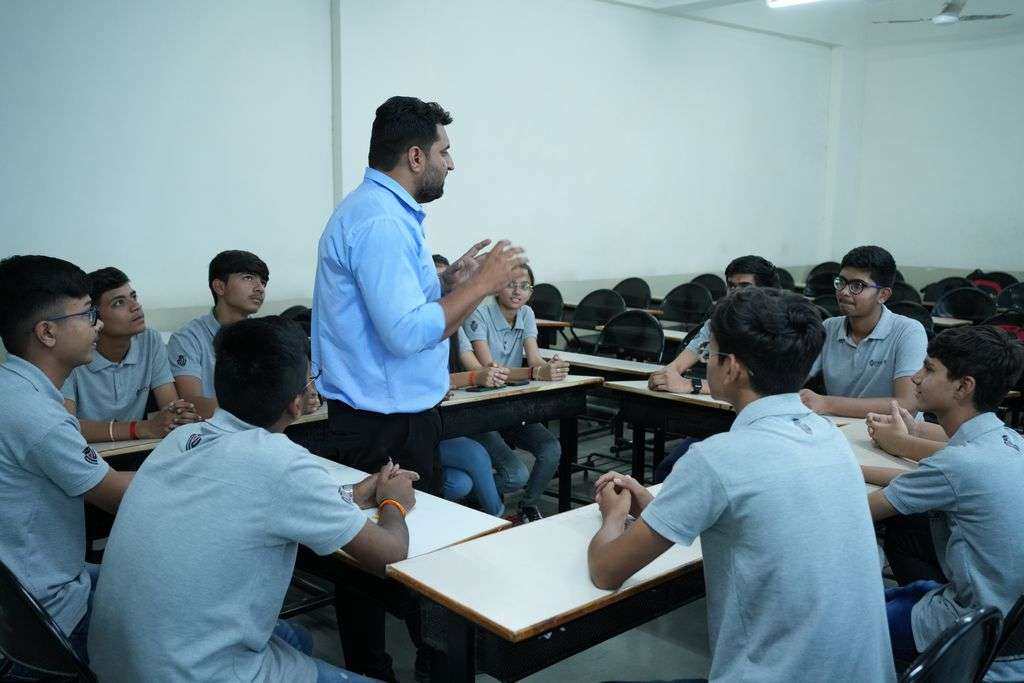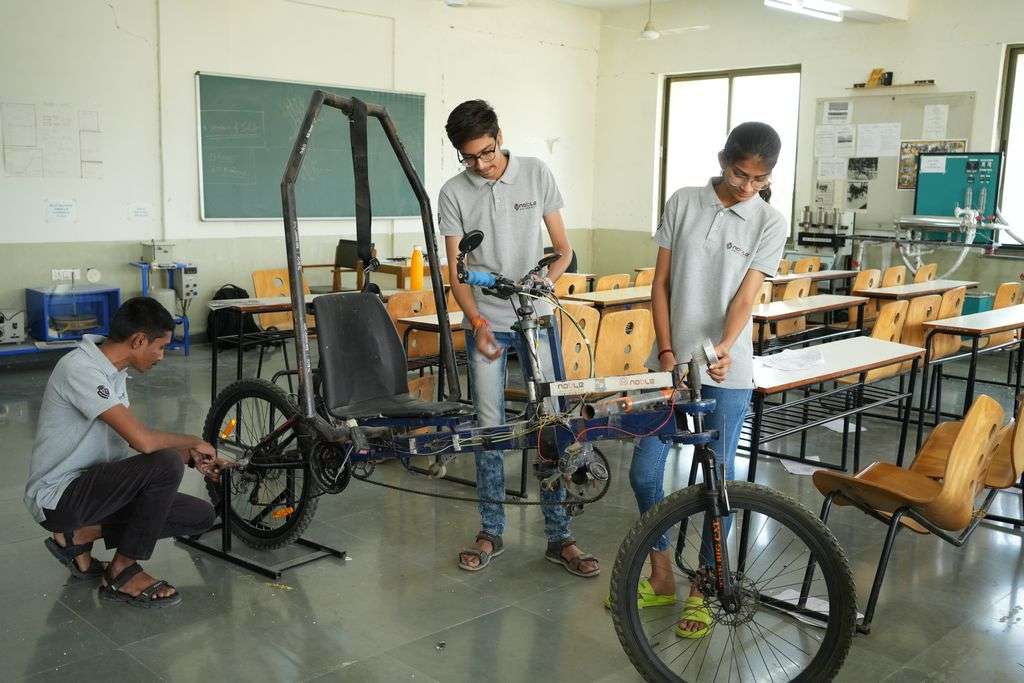
Degree vs. Diploma Course: Which One Should You Pursue?
Are you standing at a pivotal crossroads after completing your 10th grade, where one path leads to a diploma, a shorter, skill-focused route, while the other path leads to a more extended degree program. The pressing question is: Which path aligns best with your aspirations?
In India, the landscape of higher education is vast and varied. According to the All India Survey on Higher Education (AISHE), approximately 79% of students are enrolled in undergraduate degree courses every year, with disciplines like Arts (33.5%), Science (15.5%), Commerce (13.9%), and Engineering & Technology (11.9%) leading the way.
On the other hand, diploma courses offer a more direct approach to specific careers. While exact enrollment numbers for diploma courses vary, they remain a popular choice for students aiming to enter the workforce sooner, especially in technical and vocational fields.
So, how do you decide? Should you opt for the comprehensive exploration that a degree offers, or the targeted expertise of a diploma?
In this blog, we’ll delve into the nuances of both options, explore the differences between degree and diploma, their benefits, potential career paths, and how they align with your personal goals. Let’s embark on this journey to find the best fit for your future!

What is a Degree Course?
Degree courses are usually divided into three levels:
- Bachelor’s Degree – This is the first level of higher education (12th standard), usually taking 3 to 4 years to complete. Examples include Bachelor of Science (B.Sc.), Bachelor of Commerce (B.Com.), Bachelor of Arts (B.A.), and Bachelor of Business Administration (BBA). These are some of the best degree courses for students after 12th commerce/science.
- Master’s Degree – This is a postgraduate degree taken after completing a bachelor’s degree. It usually takes 2 to 3 years. Examples include Master of Science (M.Sc.), Master of Commerce (M.Com.), and Master of Business Administration (MBA).
- Doctorate (Ph.D.) – This is the highest level of education, meant for research and specialization.
Benefits of Pursuing a Degree Program
Choosing to pursue a degree can open doors to numerous career and personal growth opportunities. Here’s why a degree might be the right choice for you:
1. Higher Earning Potential
A degree often translates into better job opportunities and higher salaries. According to the India Skills Report, graduates earn 40-50% more than diploma holders on average. Many high-paying careers in fields like engineering, medicine, management, and technology require at least a bachelor’s degree.
2. Better Job Opportunities & Career Growth
Many employers prefer hiring degree holders because they possess a well-rounded education and problem-solving skills. Having a degree also increases your chances of securing higher-level positions and promotions in the long run.

3. Global Recognition & Higher Education Pathways
A degree is recognized worldwide, making it easier to apply for jobs or higher education programs abroad. If you plan to pursue a master’s (MBA, MTech, MSc, etc.) or a PhD, a degree is a prerequisite for most universities.
4. Broader Knowledge & Skill Development
Degree programs focus not only on technical expertise but also on critical thinking, leadership, communication, and analytical skills—all essential for long-term career success.
5. Wider Career Options
A diploma limits you to a specific field, while a degree provides versatile career choices. For example:
- A B.Tech graduate can work in engineering, IT, management, or even become an entrepreneur.
- A BBA graduate can explore careers in marketing, finance, HR, or data analytics.
Career Options After Degree Courses in Junagadh
A degree offers broader career options with higher growth potential. Here are the best opportunities after completing a bachelor’s degree:
1. Engineering & Technology (B.Tech/B.E.)
- Software Developer, Data Analyst, Mechanical Engineer, Civil Engineer, Electrical Engineer, AI Specialist
2. Medicine & Healthcare (MBBS/BDS/BPharm)
- Doctor, Surgeon, Dentist, Pharmacist, Medical Researcher
3. Business & Management (BBA/B.Com/MBA)
- Business Analyst, HR Manager, Marketing Executive, Chartered Accountant (CA), Investment Banker
- Journalist, Teacher, Social Worker, Psychologist, Content Writer
5. Science & Research (BSc/MSc in Physics, Chemistry, Biology, etc.)
- Research Scientist, Lab Technician, Environmental Consultant, Data Scientist
6. Computer Science & IT (BSc CS, BCA, MCA)
- Software Engineer, Cybersecurity Expert, IT Consultant, Cloud Engineer

What is a Diploma Course?
A diploma is a short-term course that focuses on practical knowledge and job skills. It usually takes 1 to 2 years to complete and helps students get a job quickly. Diplomas are ideal for students who want to start working early or who cannot afford to pursue a long-term education.
Benefits of Pursuing a Diploma
If you want to enter the workforce quickly and gain hands-on skills, a diploma might be the right choice. Diploma programs are shorter, more job-oriented, and cost-effective compared to traditional degree programs. Here’s why a diploma could be a smart career move:
1. Shorter Duration, Faster Entry into the Workforce
One of the biggest advantages of a diploma is its shorter duration. While a degree can take 3–4 years, most diploma programs are 1–2 years long, allowing you to start working sooner and gain real-world experience faster.
2. Focus on Practical Skills
Diplomas are highly skill-based and focus on practical training rather than theoretical concepts. They are ideal for industries that require hands-on expertise, such as:
- Engineering (Diploma in Civil, Mechanical, Electrical, etc.)
- Information Technology (Diploma in Computer Applications, Web Development, etc.)
- Healthcare (Diploma in Nursing, Medical Lab Technology, etc.)
- Hotel Management, Fashion Design, and more

3. Cost-Effective Education
Diploma courses in Junagadh are more affordable than degree programs, making them a great option for students who want to save money while gaining valuable skills. Many government and private institutes in India offer low-cost or subsidized diploma courses, making higher education accessible to more students.
4. Early Career Growth & Industry Demand
Many diploma holders find jobs faster because industries are actively looking for skilled professionals. According to AICTE, diploma holders in technical fields have higher employability rates in sectors like manufacturing, construction, and IT compared to general degree holders.
5. No Need to Complete 12th Grade
Unlike degree programs, which require completion of 12th grade, many diploma programs allow students to enroll right after 10th grade, providing an early start to their careers.
Career Options After Diploma Courses in Junagadh
A diploma equips you with practical skills and enables quick employment in various industries. Here are some of the best career opportunities based on different fields:
1. Engineering & Technology
- Diploma in Mechanical Engineering → Technician, Machine Operator, Quality Control Engineer
- Diploma in Civil Engineering → Site Supervisor, Junior Engineer, Construction Technician
- Diploma in Electrical Engineering → Electrician, Maintenance Engineer, Power Plant Technician
- Diploma in Computer Engineering/IT → IT Support Technician, Web Developer, Network Engineer
2. Healthcare & Paramedical
- Diploma in Nursing → Staff Nurse, Healthcare Assistant, Medical Lab Technician
- Diploma in Medical Lab Technology (DMLT) → Lab Technician, Pathology Assistant
- Diploma in Radiology → X-ray Technician, Radiology Assistant
Understanding the Key Differences: Degree vs Diploma
The table below summarises some of the major differences between degree and diploma:
| Feature | Degree | Diploma |
|---|---|---|
| Duration | 3-4 years (Bachelor's), 1-2 years (Master's) | 1-2 years |
| Focus | Theoretical and Practical Knowledge | More Practical Knowledge |
| Job Scope | Wider Career Opportunities | Quick Job Placement |
| Cost | Higher Fees | Lower Fees |
| Eligibility | 12th Pass | 10th or 12th Pass |
So, Degree or Diploma: Which is Better?
The answer to this question depends entirely on your career goals, interests, and circumstances. Both degrees and diplomas have their unique advantages, and neither is inherently “better” than the other. Instead, the right choice depends on what you want to achieve in the short and long term.
Who Should Choose a Degree?
- If you want long-term career growth and leadership roles.
- If you plan to study further (Master’s, PhD, etc.).
- If you are looking for higher salary potential and global career opportunities.
- If you want a comprehensive education with both theoretical and practical knowledge.
Who Should Choose a Diploma?
- If you want to start working as soon as possible.
- If you prefer hands-on, practical training over theory.
- If you are looking for an affordable education with a focus on specific skills.
- If you plan to gain experience first, and later upgrade to a degree.

Why Choose Noble University?
Noble University is one of the best private universities in Junagadh offering both degree and diploma programs. We are committed to providing quality education with the guidance of experienced faculty, ensuring that students receive the best academic foundation.
Whether pursuing a degree or a diploma, students benefit from practical training that equips them with real-world skills. Our university is known for its modern infrastructure and well-equipped labs, creating an ideal learning environment. Additionally, Noble University offers placement opportunities with top companies, helping students kickstart their careers.
With a wide range of degree and diploma programs, students can choose the path that aligns best with their interests and career aspirations.
Make the right choice and enrol now for a degree or diploma program from Noble University!


